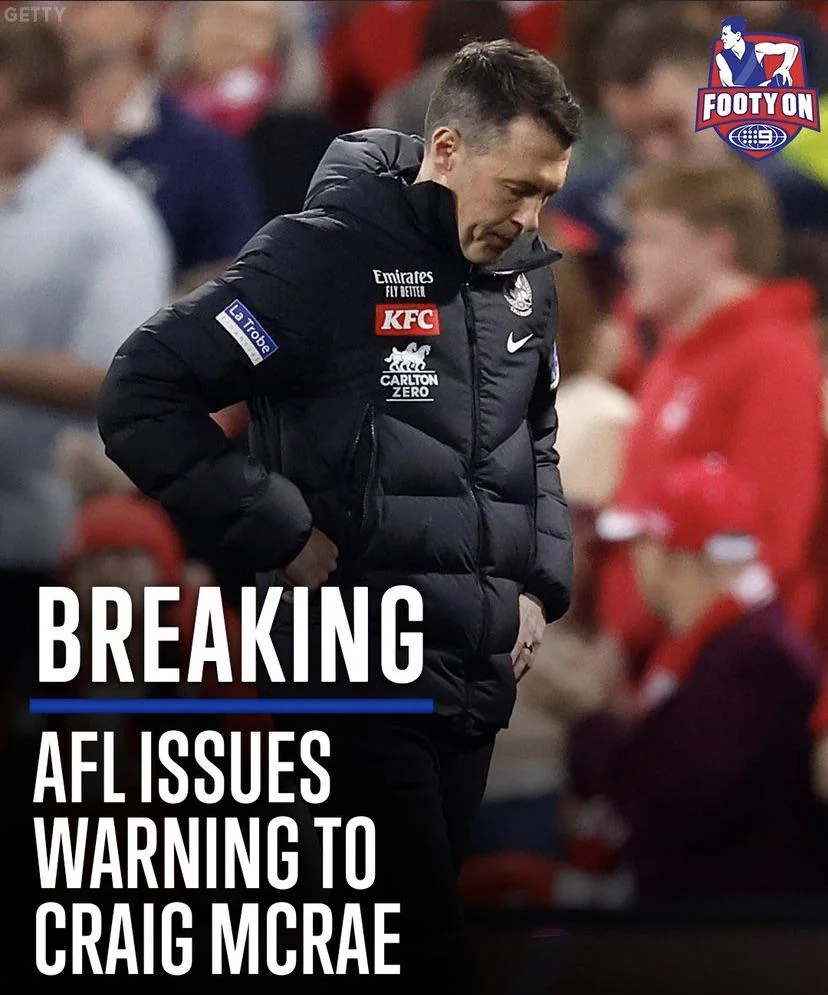Collingwood Football Club’s head coach has requested a leave of absence, sending shockwaves through the
In a surprising turn of events, Collingwood Football Club’s head coach has requested a leave of absence, sending shockwaves through the Australian Football League (AFL) community. The announcement has left fans, players, and analysts alike grappling with the implications of this unexpected decision. The circumstances surrounding this request have raised questions about the coach’s personal and professional well-being, as well as the future direction of the club.
Background on the Coach’s Tenure
Since taking the helm, the coach has been instrumental in shaping Collingwood’s competitive edge, guiding the team through both highs and lows. Under his leadership, the club made significant strides, showcasing promising performances and fostering a strong team culture. His tactical acumen and motivational skills earned him respect not only within the club but also across the league.
Despite the success, the intense pressure of coaching at a club with such a storied history can be overwhelming. Collingwood, with its passionate fanbase and high expectations, is a unique environment where every decision is scrutinized. The demands on a head coach in such a high-stakes atmosphere can lead to significant stress and personal challenges.
Reasons for the Leave
While official statements have been somewhat vague, sources suggest that the coach’s leave may be linked to personal health issues and the intense pressures of the role. Mental health awareness has been growing in sports, and the acknowledgment of mental health challenges is crucial. Athletes and coaches alike are beginning to understand that seeking help is not a sign of weakness, but rather a vital step towards ensuring long-term well-being.
Reports indicate that the coach may be experiencing symptoms of burnout, a common issue among those in high-pressure positions. The demands of preparing for games, managing player dynamics, and dealing with the media can take a toll on mental health. The decision to step away, albeit temporarily, could be a proactive measure to address these concerns.
Reactions from the AFL Community
The announcement has drawn reactions from various corners of the AFL community. Fans expressed their support for the coach, acknowledging the importance of prioritizing mental health. Many have taken to social media to share messages of encouragement, underscoring a growing trend of empathy in sports culture.
Fellow coaches and players have also voiced their support, recognizing the challenges that come with leadership roles in professional sports. This situation highlights a broader shift towards prioritizing mental well-being within the industry. The acknowledgment that even top-tier coaches face significant challenges can help reduce stigma and encourage others to seek help when needed.
The Immediate Impact on Collingwood
Collingwood now faces the challenge of navigating this unexpected absence. The club’s management will need to make quick decisions regarding interim leadership and game strategies. Assistant coaches are likely to step up to fill the void, but the transition can create instability within the team, especially during critical points in the season.
The players, too, may feel the impact of their coach’s absence. The relationship between a head coach and the team is foundational; their absence can disrupt the established routines and morale. However, this situation also presents an opportunity for players to step into leadership roles, fostering resilience and adaptability within the squad.
Looking Ahead: The Future of the Club
As Collingwood navigates this challenging period, the focus will be on how to maintain momentum on the field while supporting the coach’s journey to recovery. The club’s leadership must balance immediate competitive goals with the long-term well-being of their head coach. Ensuring that he has the necessary support during this time will be crucial.
The league itself may also take this opportunity to reassess the demands placed on coaches and athletes. Initiatives aimed at supporting mental health in sports are becoming increasingly important, and this situation may catalyze further discussions about mental wellness resources within the AFL.
Conclusion
The news of Collingwood’s head coach requesting leave is a stark reminder of the pressures faced by those in high-stakes positions. It underscores the importance of mental health awareness in professional sports. As the coach takes the necessary steps to prioritize his well-being, the AFL community stands united in support. The true measure of a coach’s strength lies not only in their tactical prowess but also in their ability to recognize when to step back and seek help.
In the coming weeks, all eyes will be on Collingwood as they navigate this challenging chapter, with hopes that both the coach and the team emerge stronger from the experience.
